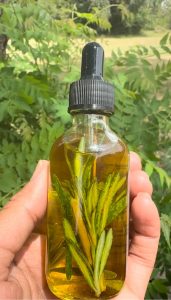
Olive oil is a popular kitchen staple, but did you know it’s also used in some hair care routines? While olive oil has potential benefits, it’s important to understand how it affects hair and use it correctly to avoid unwanted results. Here’s a comprehensive guide to using it on hair.
Understanding Hair Types
Hair comes in a variety of textures, porosities, and thicknesses. These factors influence how your hair reacts to products like it.
Hair Texture:
Hair texture refers to whether your hair is straight, wavy, curly, or coily. Generally, coarser hair textures can handle olive oil better than fine hair textures.
Hair Porosity:
Hair porosity refers to how easily your hair absorbs and retains moisture. High porosity hair absorbs moisture quickly but may lose it quickly too. Low porosity hair absorbs moisture slowly.
Hair Thickness:
Hair thickness refers to the diameter of each hair strand. Thick hair strands can handle heavier products like it better than fine hair strands.
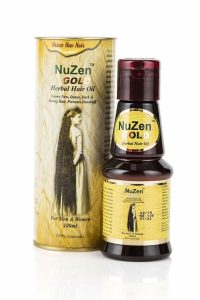
Potential Benefits of Olive Oil for Hair
It is rich in monounsaturated fatty acids and antioxidants, which may offer some benefits for hair:
-
Moisturizing: It can help hydrate dry hair, adding shine and softness.
-
Scalp Health: Some believe a light olive oil application can soothe a dry, itchy scalp.
-
Strengthening: It may help strengthen hair strands, reducing breakage.
Important Note: While these benefits are possible, more scientific research is needed to confirm the effectiveness of olive oil for hair.
Consulting a Stylist
For personalized advice on using it for your hair type and concerns, consult a hairstylist or dermatologist. They can assess your hair health and recommend the best course of action.
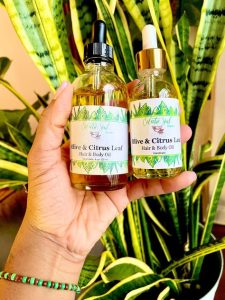
Potential Drawbacks of Olive Oil for Hair
While olive oil may seem like a natural hair treatment, there are also some potential drawbacks to consider:
-
Build-up: Itl is a heavy oil, and using too much can weigh down hair, making it look greasy and limp.
-
Not for All Hair Types: Fine hair or low porosity hair may not be able to absorb olive oil effectively, leading to a greasy look.
-
Color-Treated Hair: It may slightly lighten color-treated hair.
How to Use Olive Oil on Hair (if you choose to)
If, after considering the potential benefits and drawbacks, you decide to try olive oil on your hair, here are some tips for safe and effective use:
-
Start Small: Begin with a small amount of olive oil, like a teaspoon, and see how your hair reacts.
-
Focus on the Ends: Apply olive oil primarily to the ends of your hair, which are the driest part.
-
Leave-in or Rinse Out: You can use it as a leave-in conditioner for dry hair or as a pre-shampoo treatment to add moisture. Rinse thoroughly to avoid build-up.
-
Choose the Right Oil: Extra virgin olive oil is the best choice for hair. Opt for lighter oils like jojoba oil for fine hair.
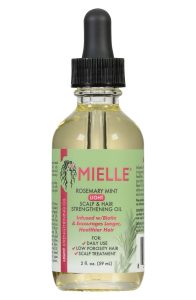
Alternative Hair Treatments
There are many alternative hair treatments available that may be more suitable for certain hair types. Here are a few examples:
-
Deep Conditioners: Deep conditioners are formulated to penetrate the hair shaft and provide intense moisture.
-
Hair Masks: Hair masks are similar to deep conditioners but may contain additional ingredients to address specific concerns like frizz or breakage.
-
Leave-in Conditioners: Leave-in conditioners are lightweight and designed to provide hydration and manageability without weighing down hair.
The Takeaway
It can be a natural hair treatment option, but it’s important to use it cautiously and understand how it might affect your hair type. Consulting a hairstylist and starting with a small amount are key for safe use. There are also many alternative hair treatments available that may be more suitable depending on your hair’s needs.
The Verdict on Olive Oil: Experiment with Caution
Olive oil offers potential benefits for hair, but it’s not a one-size-fits-all solution. Here’s a quick recap:
-
Pros: May add moisture and shine, help with a dry scalp, and strengthen strands.
-
Cons: Can weigh down hair, not ideal for all hair types, might slightly lighten color-treated hair.
Alternatives to Explore
If you’re looking for hair treatments, consider these options:
-
Deep Conditioners: Deep treatments penetrate hair for intense moisture.
-
Hair Masks: Similar to deep conditioners, often target specific concerns like frizz.
-
Leave-in Conditioners: Lightweight formulas provide hydration without weighing hair down.
These options are formulated for hair and might be a better fit depending on your hair type.
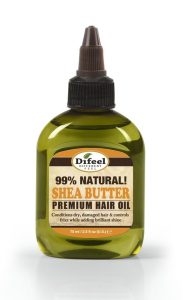
Experiment Safely
If you decide to try olive oil, remember:
- Start small: A teaspoon is plenty for most hair lengths.
- Focus on ends: Driest part of the hair that needs moisture the most.
- Consider a pre-poo treatment: Apply before shampooing to add moisture, then rinse thoroughly.
Listen to Your Hair
How does your hair feel after using olive oil? Greasy? Frizzy? If it’s not a good match, explore the alternative treatments mentioned earlier. There are many options to keep your hair healthy and happy!
Remember: Consulting a hairstylist is always a good idea. They can assess your hair type and recommend the best course of action for your specific needs.
The Final Verdict: Explore Other Options for Hair Care
Olive oil can potentially add moisture to hair, but it’s not a guaranteed win for everyone. Here’s a quick recap:
- Pros: May add moisture and shine.
- Cons: Can weigh down hair, not ideal for all hair types.
Alternative Treatments to Shine
If you’re looking for hair treatments that are designed specifically for hair, here are some options to consider:
-
Deep Conditioners: Deep conditioners are formulated to penetrate the hair shaft and deliver intense moisture. They’re a great choice for dry or damaged hair.
-
Hair Masks: Similar to deep conditioners, hair masks often target specific hair concerns like frizz, breakage, or color vibrancy. They come in a wide variety of formulas to address different needs.
-
Leave-in Conditioners: Leave-in conditioners are lightweight and designed to provide hydration and manageability without weighing down hair. They’re a good option for everyday use or for hair that tends to get greasy easily.
These hair care products are generally more effective and easier to use than olive oil because they’re formulated specifically for hair. They come in a wide variety of options to suit different hair types and needs.
Experimentation is Key!
The best way to find hair care products that work well for you is to experiment! Try different types of deep conditioners, hair masks, and leave-in conditioners to see what makes your hair feel and look its best. There are many options available to keep your hair healthy and happy!
